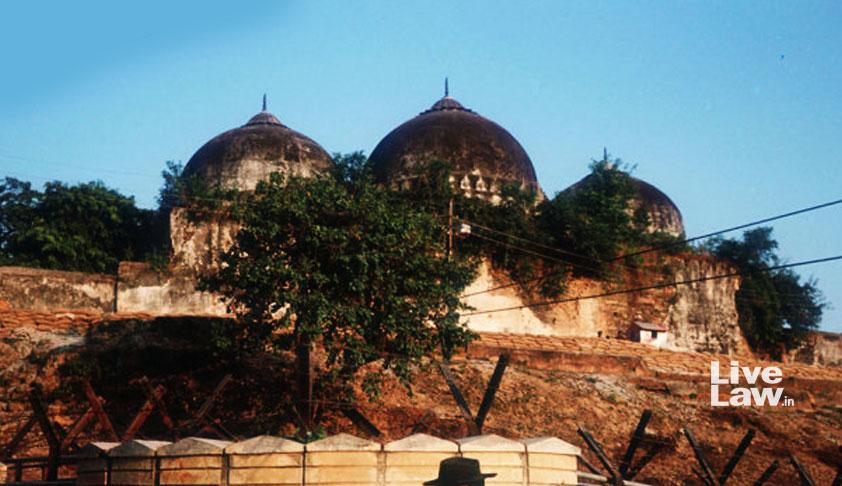The Question of What Secularism Constitutes Must be Settled One Way or Another

Image Courtesy: Live Law
As the hearing of the Ram Janmabhoomi – Babri Masjid matter resumed before the Supreme Court on Thursday, Senior Counsel Rajiv Dhavan continued raising the contention that the Ismail Farooqui Judgement be referred to a larger Bench. He submitted that when a substantial Constitutional issue arises, the matter must be referred. The Constitutional issue, in this regard, concerns the freedom of religious practice and the principle of secularism, as contained in the basic structure of the Constitution.
Speaking about the issue of religious freedom, the Senior Counsel referred to Ismail Farooqui, wherein the Judgement had stated that a mosque does not constitute a basic part of Muslim religious practice. He contended that this was an unnecessary comment as the Acquisition of Certain Area at Ayodhya Act, 1993 never said anything to the effect. He stated that the Supreme Court could have limited itself to stating that no suit for claims could arise due to a limitation provided in the same in the Act. Referring to the definition of ‘area’ under the Act, he submitted that under the definitions clause, the area refers to the entire area of buildings property – including where the mosque once stood. Whereas, later in the Act, area refers only to the place where the mosque had stood. He further stated that the Judgement was delivered at a time of uncertainty and communal disharmony.
Dhavan also referred to a speech made by the then President of India Shankar Dayal Sharma, quoted in the Ismail Farooqui Judgement. He stated that the question of ‘comparative significance’ should never arise. The quote referred to the religions that came to India being allowed to flourish through the people’s sense of religious tolerance. The speech also mentioned that the religions did not arrive out of military conquest. He also questioned the Judgement which deemed that the dispute was only about the area where the mosque stood. The Judgement referred to other buildings on the site as ‘Manas Bhawan’ and ‘Sita ki Rasoi’ – bolstering the presumption that the structures belonged to the Hindus.
The Senior Counsel’s view on the Constitutional significance of the decision is that it limits the religious practice of Muslims. The decision had stated that a mosque is not an ‘essential feature’ of Muslim religious practice. Hence, according to him, this did not take into consideration the decision in The Commissioner, Hindu Religious Endowments, Madras v. Lakshmindra, which had stated that what constitutes an essential part of a religion is to be determined by that religion. In this regard, a mosque would be considered as an essential feature, as it is deemed so in the Quran and Hadith.
However, the broader question of secularism in the Indian context is what needs urgent attention by the higher judiciary. Religion is constantly being featured in politics, irrespective of which religion one is talking about. The Ram Mandir issue is used as an election springboard in Hindu-majority areas. Christianity was constantly evoked in the recent assembly elections in Nagaland and Meghalaya. The current common understanding of secularism seems very vague. Particularly, since some have tried to equate it with ‘religious appeasement’. In this context, the matter must be settled one way or another, in the larger public interest.
Get the latest reports & analysis with people's perspective on Protests, movements & deep analytical videos, discussions of the current affairs in your Telegram app. Subscribe to NewsClick's Telegram channel & get Real-Time updates on stories, as they get published on our website.
























